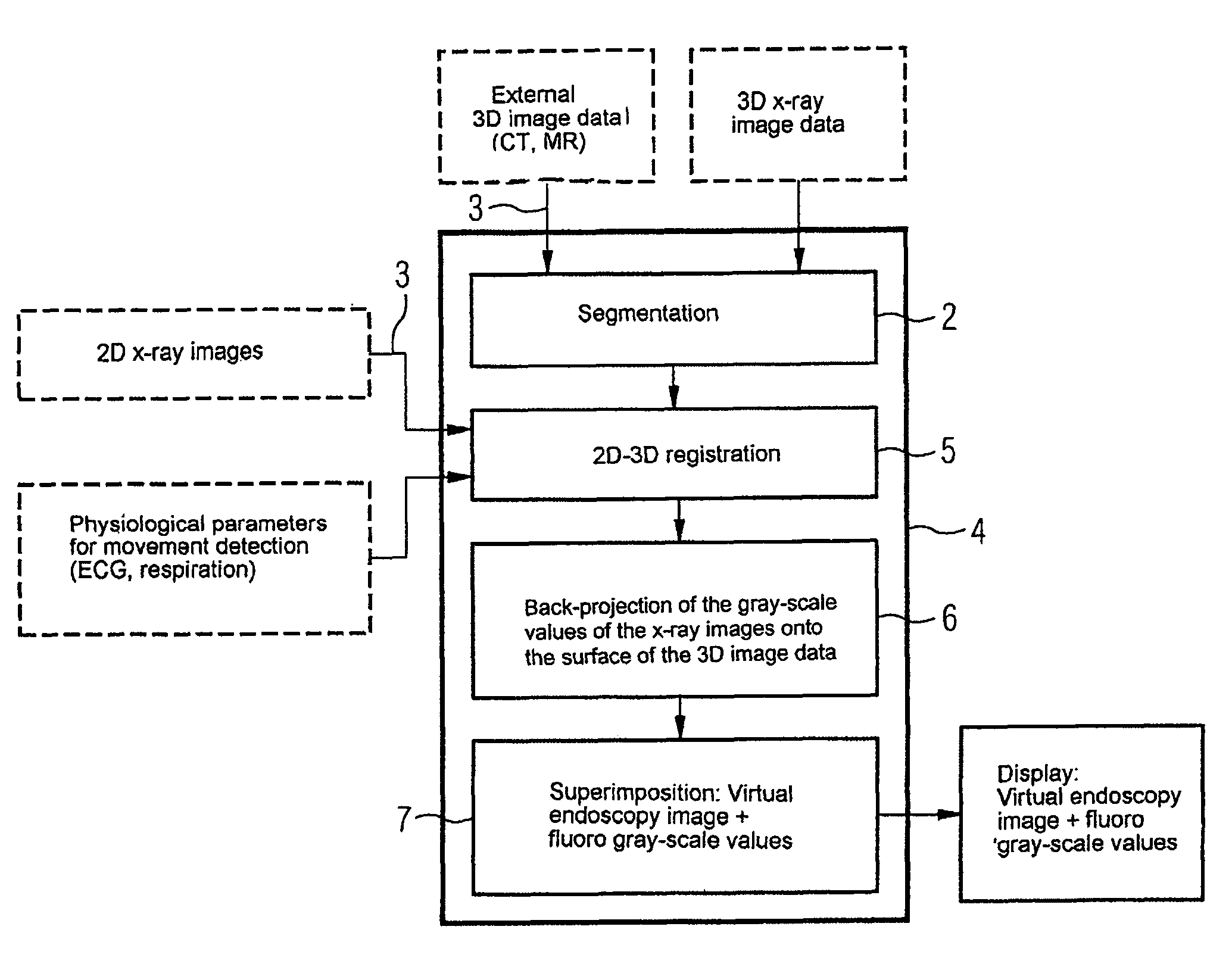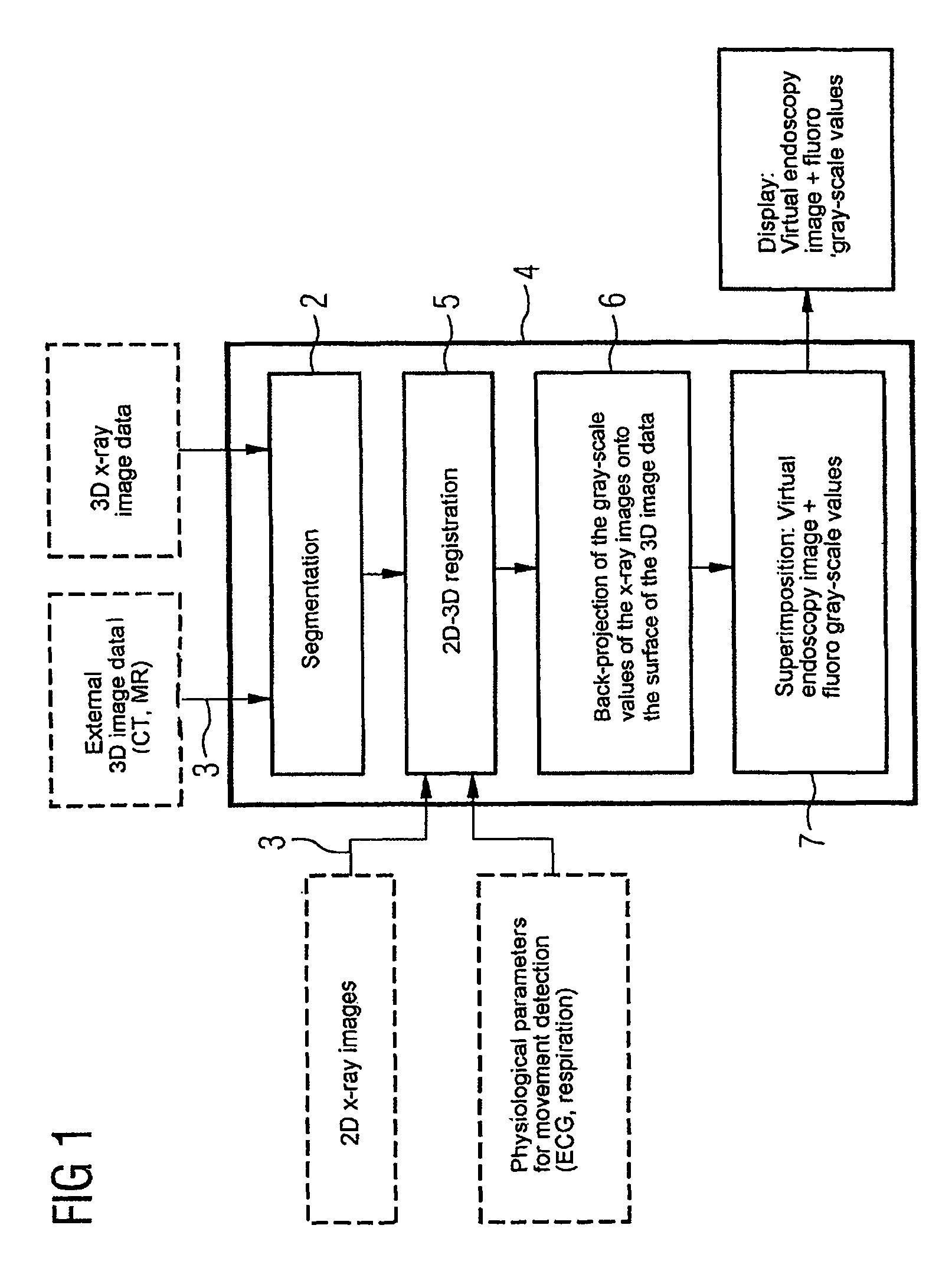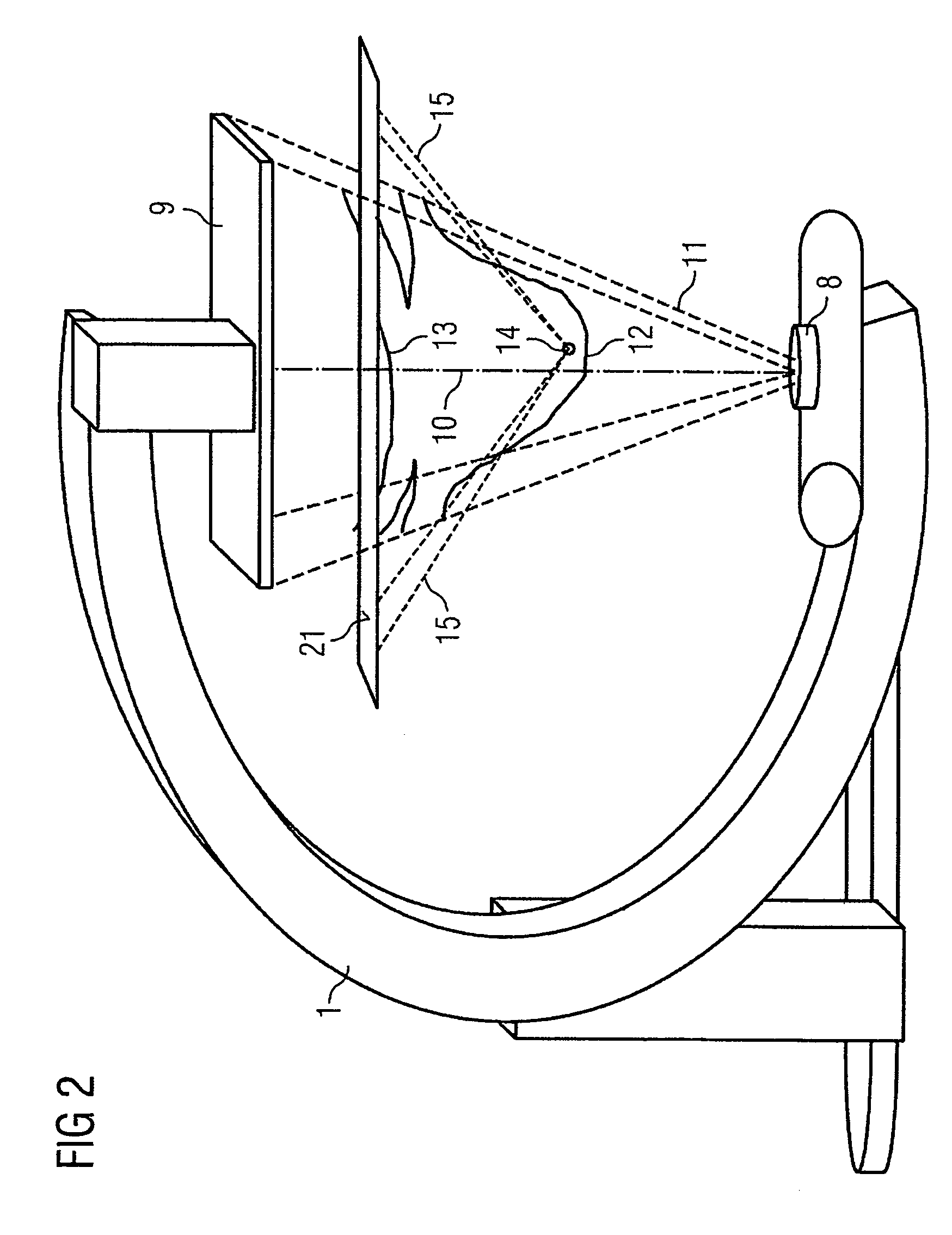Device for merging a 2D radioscopy image with an image from a 3D image data record
a radioscopy image and image data technology, applied in image enhancement, image analysis, instruments, etc., can solve the problems of spatial orientation of the doctor, limited two-dimensional imaging of fluoroscopy images, and relatively little information, so as to achieve less use of x-rays
- Summary
- Abstract
- Description
- Claims
- Application Information
AI Technical Summary
Benefits of technology
Problems solved by technology
Method used
Image
Examples
Embodiment Construction
[0020]Preferably the proposed device is part of a C-arm device, with which 2D fluoroscopy images can be recorded during an interventional action on a patient. The device, which can for example be implemented in the image processor of the C-arm device, is here connected to an image display unit, for example a monitor, on which the merged images are displayed.
[0021]FIG. 1 shows in diagrammatic form an example of the structure of the proposed device. The device 4 has the following essential components in the example illustrated: a segmentation unit 2, a registration unit 5, a back-projection unit 6 and an image merger unit 7.
[0022]The segmentation unit 2 is designed for preprocessing the 3D image data which is fed to a memory unit (not illustrated) of the device via an interface 3. The 3D image data originates from a 3D imaging method such as, for example, a method of magnetic resonance tomography or computer tomography or was recorded by means of 3D angiography. In the segmentation un...
PUM
 Login to View More
Login to View More Abstract
Description
Claims
Application Information
 Login to View More
Login to View More - R&D
- Intellectual Property
- Life Sciences
- Materials
- Tech Scout
- Unparalleled Data Quality
- Higher Quality Content
- 60% Fewer Hallucinations
Browse by: Latest US Patents, China's latest patents, Technical Efficacy Thesaurus, Application Domain, Technology Topic, Popular Technical Reports.
© 2025 PatSnap. All rights reserved.Legal|Privacy policy|Modern Slavery Act Transparency Statement|Sitemap|About US| Contact US: help@patsnap.com



